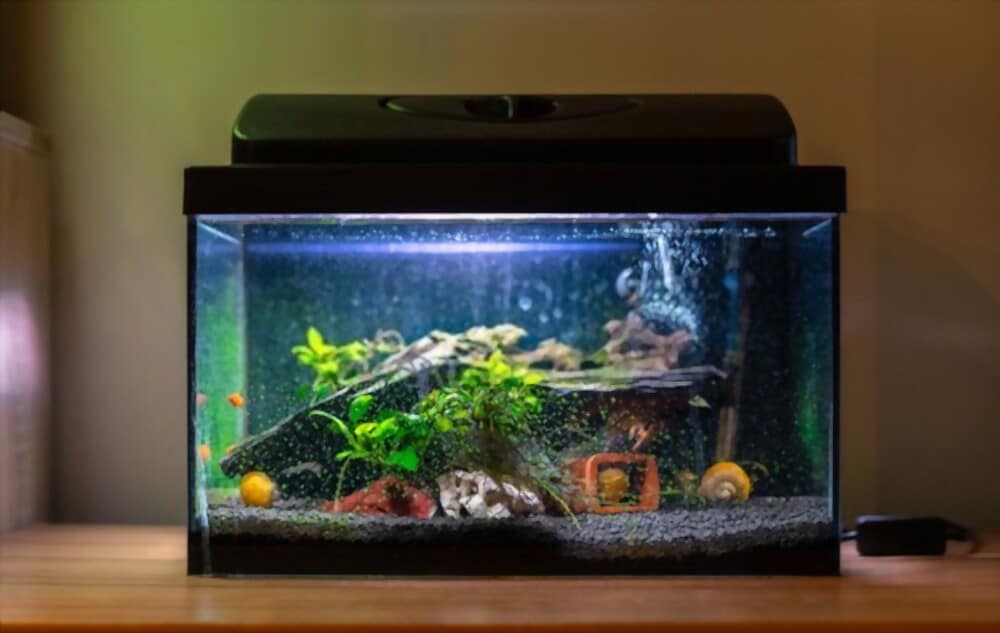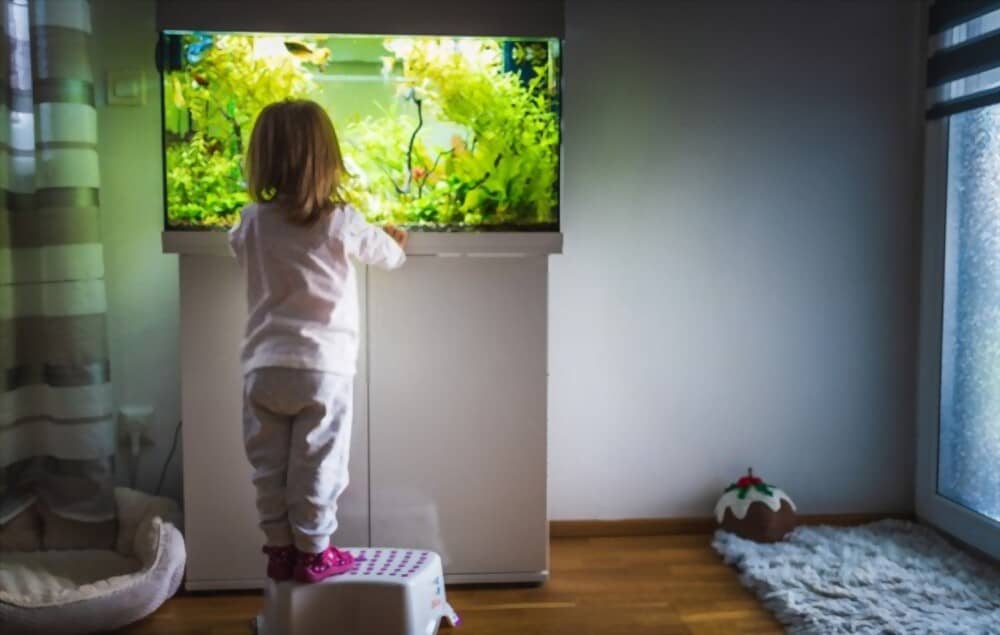Both indoor and outdoor plants can benefit greatly from the usage of fish tank water. To maintain the ideal habitat for happy fish, the water in the fish tank must be changed often. You may conserve water and use it again on your plants.
Because aquarium water includes nitrates, a kind of nitrogen that plants may readily absorb, it is advantageous to use aquarium water to water plants. Nitrates are created by plants to build green, leafy branches that increase photosynthesis and produce the food required for normal growth and development.
You shouldn’t flush the fish tank’s water down the toilet. Actually, you are wasting fertilizer that you probably need to purchase for your plants. The water in fish tanks is so much more complex than first appears.
Table of Contents
Is Fish tank Water good for plants?
The fish in a tank will perform their typical daily tasks, and as a result, the tank will eventually grow dirty and require cleaning.
A fish tank’s water is changed periodically to get rid of extra chemicals and other substances that, if left to accumulate, could endanger the fish.
Even while the water from the fish tank may not later be good to the fish, it is undoubtedly advantageous to the plants since it includes nitrates, which are a source of nitrogen.
Let’s now take a brief scientific detour.
To ensure healthy growth, plants require three essential components.
Any plant owner will inform you that it contains potassium, phosphorus, and nitrogen (N, P) (K). NPK is essential for the proper growth of plants.
The majority of the nitrogen in the fish tank water is present as nitrates. A plant cannot develop, have blooms and create seeds without nitrates.
This is mainly because nitrogen is a crucial component of chlorophyll and plant proteins, both of which are required for the process of photosynthesis.
Proteins included in fish meals can also be used as plant fertilizer. That is another another way to feed your plants.
Good bacteria can be found in fish aquariums where they convert poisonous ammonia from fish waste into nitrites (not used by plants). The Nitrites are then further transformed into Nitrates, an element that plants adore.
Any fertilizer container will reveal some of the ingredient list as (strange chemical name)-Nitrogen if you look closely.
for instance, nitrogen ammoniac
So when you buy fertilizer at the plant store, that is what you are paying for. Keep it since your plants will benefit greatly from it.
I would suggest Osmocote Smart-Release Plant Food if you’re looking for a fertilizer that will make sure your plant grows healthily for a long period with no involvement. Clicking here will take you there.
Using Fish Tank Water is Similar to Aquaponics
For thousands of years, people have been watering plants with fish water. This explains why so many ancient civilizations settled close to rivers and other bodies of water.
Aquaponics is the marriage of aquaculture (the practice of raising fish in tanks) and hydroponics (the practice of raising plants in nutrient-rich water), in which microbes use a recirculating system to transform fish waste into nutrients that plants can use to develop.
You feed the fertilizer to the plants once the fish produce it.
Instead of a full aquaponic system, you may use your pet fish to make fertilizer that will help plants thrive.
I have written a complete post outlining everything about aquaponics if you’d like a more in-depth explanation of the method and how it functions.
Types of Plants Fish Water is Good For
All kinds of plants will benefit from the fish tank’s water. However, some plants actually enjoy it far more than others.
In general, green leafy plants require more nitrogen than blooming and fruiting plants. These are them.
- Lettuce
- A. K. Choi
- Choi Bok
- Cabbage
- Tomatoes
- Cucumbers
When Not to Use Water from the Fish Tank
Even still, using fish tank water to water plants is an excellent idea. Too much excrement in an aquarium could be terrible for the plants that are being watered as well as the fish.
Excess ammonia may arise if fish waste accumulates too much. This occurs because the bacteria in the tank are unable to handle the workload. Poop then causes the water to become filthy and murky.
Ammonia should not be used to water plants because it is hazardous to both fish and plants.
Instead, it ought to be discarded. if you’re determined to use the water. Simply store it in a container for a few days or even a week. The bacteria in the water would have adequate time to function as a result.
Keep the water in a dark area because if it were exposed to light, algae would grow and consume the water’s available nitrates.
It will be safe to water plants once the period of time has passed since the ammonia will have been changed into Nitrates that the plants can utilise.
If you recently employed any chemical additions, such as pH up or pH down, to control the water conditions in the fish tank, don’t water the plants. The facility will also be impacted by the additives. So keep this in mind as well.
Using Water from a Salt Water Fish Tank
In this situation, you must make every effort to avoid watering the plants with salt water. You will be dehydrating the plants instead of adding more water.
The majority of plants can withstand saltwater on their leaves and stems, but if they consume salt water from the soil, they will get dehydrated. Even if they don’t become dehydrated, having too much salt in their bodies could poison them.
Due to the fact that salt is one of the nutrients required for plants to thrive, plants require a little level of salinity to survive.
But because saltwater contains a lot of the mineral, most plants can be poisoned by it.
Summary
Since fish tank water includes nutrients that plants need to flourish, watering plants with it is good for the plant.
Water from a saltwater tank, on the other hand, should absolutely be avoided because it includes salt that will do more harm than good.


